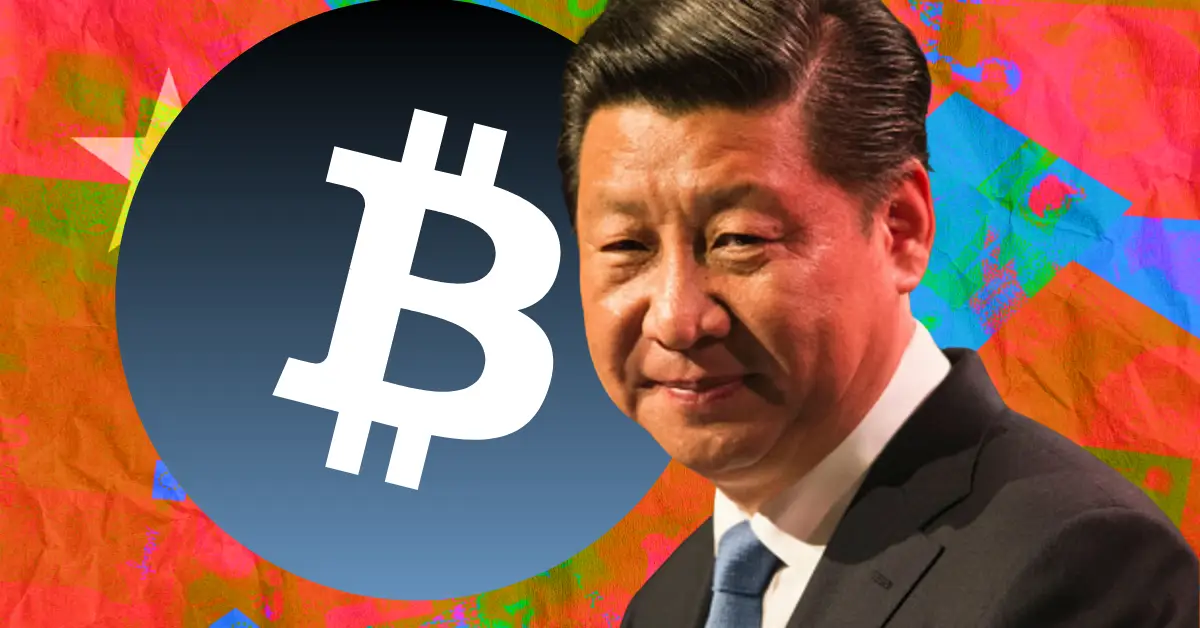
China’s yuan falls to lowest since 2023, aiming to boost exports amid rising global trade pressure.
Bitcoin analysts see opportunity as China’s weakening yuan could drive crypto investments.
Trump threatens 50% tariffs, escalating trade tensions between U.S. and China.
In a move that’s turning heads around the world, China has allowed the yuan to slip to its weakest level since 2023. While it may seem like just another shift in currency policy, this one carries some serious weight. It’s widely seen as a response to rising U.S. trade tariffs – but the ripple effects could reach far beyond trade. Some experts believe this dip could quietly spark a surge in Bitcoin.
Could a falling yuan be the push that reignites the crypto market? Here’s what’s really going on—and why it matters.
China’s Currency Strategy Takes a Turn
On April 8, the People’s Bank of China (PBOC) set the yuan’s exchange rate at 7.2038 per U.S. dollar, marking its lowest point in several months. This suggests that China may be deliberately letting the yuan weaken to help make its exports more attractive, especially as trade tensions with the U.S. rise.
China has usually kept the yuan within a controlled range, so this shift could signal a change in approach that may have broader economic consequences.
Tensions escalated further after U.S. President Donald Trump


“If China doesn’t remove its 34% increase on trade by April 8, 2025, the U.S. will add a 50% tariff starting April 9. Additionally, we will end all talks with China regarding their requested meetings.”
This tough stance may be putting more pressure on China’s economy – and its currency.
Could Bitcoin Benefit from a Weaker Yuan?
As the yuan drops, some experts believe Chinese investors could turn to Bitcoin to protect their money. Markus Thielen, founder of 10x Research, pointed to a similar moment in 2015, when a decline in the yuan led to a major rise in Bitcoin’s price. Back then, Bitcoin briefly fell—but then jumped nearly 60% within four months.
Ben Zhou, CEO of the crypto exchange Bybit, shared a similar view. He said that in the past, whenever the yuan weakened, large amounts of Chinese money flowed into Bitcoin. If that trend continues, we could see a strong rise in Bitcoin in the coming months.
Strict Crypto Rules Could Slow Things Down
Still, investing in crypto in China isn’t easy. The country has some of the world’s strictest rules on digital currencies. Banks are required to monitor and report any suspicious international transactions, including those involving crypto.
Since August 2024, the Chinese government has stepped up efforts to stop money from leaving the country through digital assets. These crackdowns could make it harder for Bitcoin to gain momentum, even if interest grows.
While there are signs that Bitcoin could surge like it did in 2015, China’s tough rules may limit how much of that potential becomes reality. Investors and analysts alike will be watching closely to see whether history repeats itself – or if this time, things play out differently.
Never Miss a Beat in the Crypto World!
Stay ahead with breaking news, expert analysis, and real-time updates on the latest trends in Bitcoin, altcoins, DeFi, NFTs, and more.
FAQs
A weaker yuan often pushes Chinese investors toward Bitcoin as a hedge, potentially boosting BTC demand and price.
Buying crypto in China is restricted; users often access offshore platforms, but strict regulations limit legal use.









